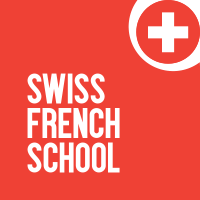How to Choose a Reliable French School in Switzerland: 5 Tips You Shouldn’t Ignore
Making the Right Choice for Your Language Journey
Whether you’re learning French for work, studies, or everyday life in Switzerland, choosing the right school is an important first step. With so many options available, both online and in-person, it’s natural to feel unsure about which path to take.
This guide outlines 5 essential tips to help you evaluate French schools effectively, avoid common pitfalls, and select a course aligned with your needs and learning goals.
1. Look for Recognized Quality Standards (eduQua Certification)
One of the best ways to ensure you're choosing a reliable French course in Switzerland is to look for eduQua certification.
What is eduQua?
eduQua is the official Swiss quality label for adult education. Supported by the Swiss Confederation, it sets clear, verifiable standards for continuing education providers. Schools with eduQua certification must demonstrate:
- Transparent and structured programs
- Professionally qualified, regularly evaluated instructors
- Student-centered, goal-oriented teaching
- Ongoing quality control through audits and feedback
This certification helps ensure a consistent standard across institutions and gives learners peace of mind.
2. Evaluate the Learning Method, and How It Aligns with Your Needs
When selecting a French course, it is essential to consider not only the school’s methodology but also how well it aligns with your individual learning preferences and goals. No single teaching method works for everyone, and what feels effective for one learner may not suit another.
Some adults benefit from structured programs with clear grammar explanations and written exercises. Others progress more quickly in immersive, conversation-based environments, where they learn through speaking and real-world interaction. Reflecting on your past experiences, what helped you retain knowledge and, what challenged you, can help you identify a method that suits your needs.
Every language school has its own pedagogical approach. To evaluate whether it’s the right fit, consider the following questions:
- Does the school use a structured and consistent method across all instructors and levels?
- Is the focus on spoken communication, or primarily on grammar and theory?
- Will you have regular opportunities to speak French in real-life situations?
- Can the pace and format be adapted to your learning style and schedule?
Language learning research consistently shows that speaking confidence is one of the most common challenges among adult learners, particularly when authentic, interactive practice is limited. This highlights the importance of choosing a program that integrates oral communication throughout the course, not just in isolated activities. Look for schools that include role plays, practical simulations, and instructor-led conversations as a regular part of their curriculum.
Example: A learner preparing for life in French-speaking Switzerland may want to focus on practical speaking skills, such as asking for directions, making appointments, or navigating a job interview. A suitable course might combine structured grammar instruction with regular speaking exercises in small groups, helping the learner become confident in everyday communication while also building a solid foundation.
A well-structured and supportive method , one that balances theory with practice , can make a substantial difference in how comfortably and confidently you use French in daily life.
3. Class Flexibility and Personalization
For many adult learners, balancing language study with work, family responsibilities, or other commitments can be challenging. That’s why flexibility is not just a convenience, it’s often a deciding factor in whether learning is sustainable over time.
Whether you prefer small group classes, private lessons, or a self-paced online program, the format should adapt to your lifestyle, not the other way around.
When evaluating a French course, consider the following:
-
Are classes offered at times that work with your schedule? Look for schools that offer morning, evening, or weekend sessions to accommodate professionals, shift workers, or parents.
-
Can you choose between in-person, online, or blended formats? Flexibility in location allows you to continue learning even when travelling or working remotely.
-
Is the course designed to follow your pace? Some learners may wish to move faster; others may need more time to review concepts. A quality program should allow for customized learning speeds.
-
Is there an option to switch formats as your circumstances change? For example, starting with face-to-face classes and later continuing online, or moving from group to private lessons as goals evolve.
Flexibility supports consistency. If a program allows you to attend classes outside of regular business hours or learn from home when needed, you are far more likely to stay engaged and progress steadily, without having to pause or drop out due to scheduling conflicts.
Example: For example, a working professional might choose to study French two evenings per week, then add a weekend intensive course during quieter periods at work. A parent might prefer online lessons after 9 p.m., once household routines are finished. Others may combine formats, taking group classes for structure and adding private lessons for exam preparation.
4. Teacher Credentials and Support
The quality of instruction plays a central role in the success of any language course. In addition to following a clear curriculum, the effectiveness of a program often depends on the skills, training, and background of the teaching staff.
At minimum, learners should expect teachers who not only speak the language fluently, but also know how to teach it effectively; particularly to adults with varying goals and learning styles.
When comparing schools, consider the following:
-
Are the instructors native French speakers with formal teaching qualifications? Native fluency brings cultural depth, accurate pronunciation, and a more intuitive command of the language. When combined with credentials in teaching French as a foreign language (FLE) or equivalent academic training, it ensures lessons are both authentic and pedagogically sound.
-
Is feedback structured and individualized? Regular feedback, on pronunciation, grammar, speaking fluency, and written work, helps learners progress with clarity and confidence. High-quality programs include progress tracking, formative assessments, and teacher guidance tailored to each learner’s needs.
-
What level of academic and administrative support is available? Outside of the classroom, access to instructors or coordinators for additional questions, rescheduling, or learning resources is an important aspect of student experience, especially in longer-term or exam-focused courses.
Why Native, Trained Teachers Make a Difference
Learning with a native French teacher offers more than just fluency exposure. It creates an opportunity for students to engage with the nuances of pronunciation, idiomatic expressions, and cultural references in an authentic way.
Qualified native teachers can also:
- Model real-life speech patterns and register (formal/informal)
- Provide cultural context that goes beyond the textbook
- Detect and correct subtle learner errors
- Encourage oral fluency through natural interaction
Example: A student preparing for the FIDE speaking test may feel confident in vocabulary and grammar but struggle with pronunciation or fluency. A native instructor can help identify hesitation patterns or unnatural phrasing, offer targeted pronunciation practice, and simulate real-life dialogues, bridging the gap between textbook knowledge and actual spoken communication.
5. Student Feedback and Course Outcomes
While program descriptions and promises are useful, one of the most reliable ways to evaluate a language school is to examine what former and current students have experienced. Student feedback and course outcomes provide critical insight into the quality, consistency, and long-term impact of the learning experience.
When researching a school, consider the following:
-
Are testimonials available, and are they specific? Look beyond general praise and look for feedback that mentions teaching quality, progress made, and learner support. Authentic reviews on platforms like Google, or the school’s website can offer valuable perspective on what to expect.
-
Does the school support exam preparation and successful certification? If your goal is to pass an official exam such as DELF, DALF, or FIDE, ensure the program offers dedicated preparation, including mock exams, targeted grammar and speaking practice, and clear explanations of exam requirements. Success rates in these exams often reflect the school’s ability to guide learners toward concrete outcomes.
-
Is student retention high? Do learners return for additional levels or continue over the long term? A school that retains students beyond the first module is likely providing value. Long-term engagement often signals satisfaction with the method, flexibility, and support offered throughout the program.
Example: A student aiming for permanent residency in French-speaking Switzerland may need to complete the FIDE test. A well-structured program would not only provide the necessary language input but also guide the learner through the specific format and expectations of the exam. Success stories from past students, for instance, testimonials describing how the course helped them pass or feel fully prepared, are often a good indicator of the school’s effectiveness in similar cases.
Looking for a School That Meets These Criteria?
If you're currently evaluating French language schools in Switzerland and looking for a program that aligns with the five core criteria discussed above: quality standards, effective methodology, flexibility, qualified instructors, and proven outcomes, then Swiss French School may be a strong option to consider.
Here's how our approach aligns with the elements outlined in this guide:
-
eduQua Certified Since 2016 We operate under Switzerland’s official quality label for adult education, ensuring transparency, structured programs, and a commitment to continuous improvement.
-
A Method Focused on Real-Life Communication Our teaching method emphasizes spoken French and practical progress. Courses integrate role plays, situational exercises, and guided speaking from the very first level.
-
Flexible Course Formats and Schedules Whether you need in-person, online, or blended learning, we offer small group or private lessons that adapt to your schedule, including evenings and weekends.
-
Native, Professionally Trained Instructors All our teachers are native French speakers, certified and experienced in working with adult learners. Their guidance is tailored to support both fluency and accuracy.
-
Consistently Positive Feedback and Long-Term Engagement Our students often stay with us through multiple levels, preparing for goals such as DELF, DALF, or FIDE exams, or improving communication for professional life.
For example, one of our students Marielle, went 𝗳𝗿𝗼𝗺 𝗔𝟭 𝘁𝗼 𝗕𝟮 level and transformed her life in Switzerland in just 1 year.
If you're looking for a school that combines rigorous educational standards with the flexibility and support adult learners need, Swiss French School is ready to help you take the next step in your language journey.
Ready to start your French learning journey?
Contact us today, one of our language consultants will be happy to assist you and will respond within 24 to 48 hours.

